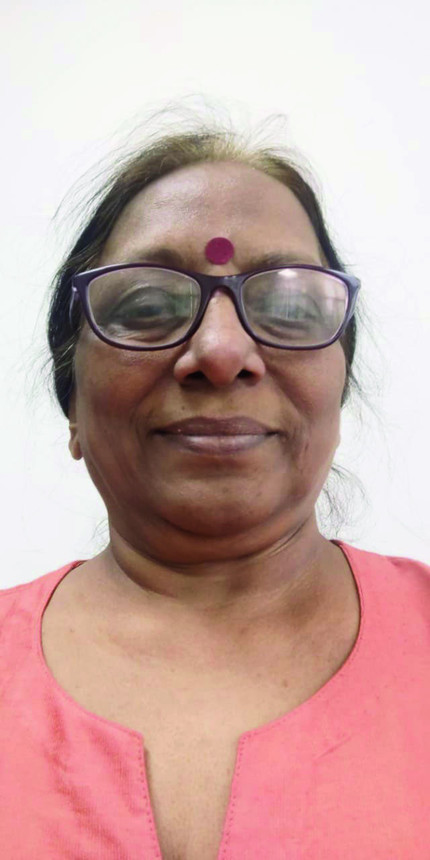Beyond Tech: A fresh start for humanities, social sciences at IITs
Abhay Anand | March 25, 2020 | 12:57 PM IST | 6 mins read
In line with the National Education Policy and to do well in international university rankings IITs are striving to become multidisciplinary institutions.

NEW DELHI: From the summer of 2020, the Indian Institute of Technology (IIT), Delhi, will introduce two postgraduate courses, admitting 25 students in each – MSc in economics and cognitive science. They will be offered by the Department of Humanities and Social Sciences.
In 2018, soon after IIT Delhi was awarded the status of an “Institution of Eminence”, its director, V Ramgopal Rao, had said: “We will branch out and do more of what we have not done yet.” The IoE scheme’s sole objective is to get the institutions so designated
to achieve higher international university rankings.
Rao had further said that IIT Delhi would launch a range of programmes that would respond to market needs. He wasn’t defining the roadmap for just one IIT. Nearly all the IITs are moving further away from core science and technology to evolve into multi-disciplinary institutions. First, the business schools came in the 1990s. But since the early 2000s, the humanities and social science departments have hit a growth trajectory, launching new undergraduate and postgraduate degree programmes.
This shift is endorsed by the draft National Education Policy 2019 which recommends that all institutions, including IITs, must strive to become multidisciplinary institutions. That international university rankings appear to favour multidisciplinary universities is a motivator as well.
Also Read | NIRF Ranking 2021: Check last three years’ category-wise NIRF rankings
The HSS departments
The oldest IITs have had humanities and social science departments for decades and new ones have them as well. Each IIT’s HSS department is different as are the courses they run. For many years, they mostly guided research in PhD programmes and taught only the elective courses that B.Tech students had to compulsorily study. According to an IIT Delhi faculty, every engineering student must earn 15 credits from courses offered by HSS departments.
But that has changed significantly. Now, some offer highly specialised undergraduate and postgraduate courses while others have degree programmes in more conventional disciplines in the humanities and social sciences. Alongside, the number and variety of programmes offered as electives to engineering students also grew.
Also Read | NIRF Rankings 2021: Dharmendra Pradhan urges to develop regional ranking frameworks
In 2005, IIT Kharagpur and IIT Kanpur launched five-year integrated (combining bachelor’s and master’s) programmes in economics – the first IITs to do so. In 2011, they restructured the programme into four-year bachelor’s and one-year master’s programmes. IIT Madras followed with five-year integrated programmes in English studies and development studies in 2006. In 2009, IIT Guwahati started a master’s programme in development studies. IIT Bombay started a four-year bachelor’s course in economics in 2017.
Multidisciplinary training
The economics programme at IIT Bombay is designed to build strong foundations in mathematics and statistics as well. At IIT Madras, students in the two integrated MA programmes spend the first two years studying a wide range of courses not related to a particular domain before they choose a major in their third year, said Umakant Dash, head of HSS at IIT Madras.
This gives students an opportunity to think about their interests. “Another advantage is the balance it has achieved between the foundational courses such as principles of economics and foundations of social and political thought, and niche courses such as film theory, linguistics, industrial organisation and China studies,” explained Dash. In fact, such multidisciplinary training is built into the structures of the departments themselves and is not typically found in conventional public universities.
 Each department includes faculty members with expertise in a wide range of disciplines. This heterogeneity almost guarantees a multidisciplinary approach to both research and teaching. The IIT Delhi-HSS, for example, has teachers from economics, linguistics, literature, philosophy, psychology and sociology. IIT Bombay’s HSS department similarly combines resources from six disciplines. “Students get exposure to six disciplines in one department, unlike in any traditional university,” said Pushpa Trivedi, the department head. “Besides, the flexibility in the IIT system enables them [the faculty-members] to pursue their academics.”
Each department includes faculty members with expertise in a wide range of disciplines. This heterogeneity almost guarantees a multidisciplinary approach to both research and teaching. The IIT Delhi-HSS, for example, has teachers from economics, linguistics, literature, philosophy, psychology and sociology. IIT Bombay’s HSS department similarly combines resources from six disciplines. “Students get exposure to six disciplines in one department, unlike in any traditional university,” said Pushpa Trivedi, the department head. “Besides, the flexibility in the IIT system enables them [the faculty-members] to pursue their academics.”
Also Read | NIRF Ranking 2021 for MBA: IIM Ahmedabad, IIM Bangalore, IIM Calcutta In Top 3; Full list here
With the freedom to design the course, teachers remain “highly motivated” and students get the “best out of them”, added Dash. Also, as part of the IIT system, they are more generously funded and free to collaborate with science and technology departments. Research scholars receive funds to present their work at national conferences once every year and once at an international conference over the course of their PhD.
Improved rankings
That the IITs have not been able to break into the top 150 ranks of any international framework is a sore point, even for the government. As an examination of the best-known university ranking systems shows, they generally favour multidisciplinary institutions.
If a higher weight is assigned to multi-disciplinary research and teaching, the rank of an institute fostering those will improve, explained T.G. Sitharam, director, IIT Guwahati. “Concerning research, there is more scope for multidisciplinary themes of late than core areas,” he added.
At the IIT Council meeting last September, the Union Human Resource Development Minister asked IITs to come up with an action plan to improve their national and international rankings. But diversifying is easier said
than done.
Also Read | NIRF Ranking 2021: IIT Madras is the best educational institution in India
“While it is true that IITs are not comprehensive universities and incur a handicap when ranked among comprehensive universities, we also cannot easily grow into a comprehensive university given our resource constraints without losing the edge in engineering and science,” said IIT Madras director, Bhaskar Ramamurthi.
In research
The IITs have ranked well due to the multidisciplinary culture among the science, engineering and technology disciplines. However, in the international rankings, they suffer on parameters such as the presence of foreign students and faculty and research impact. One way to improve research impact is embracing multi-disciplinary research that also includes the humanities and social sciences.

At IIT Guwahati, faculty from the Centres for Linguistic Science and Technology, Environment and Rural Technology is collaborating with the departments of civil engineering, chemical engineering and design on multi-disciplinary research. The research issues are classified into “clusters”, said Sitharam. These include development, governance and policy; language, literature and textualism; culture, identity and social hierarchy; international studies and security; behavioural sciences; and nature and culture.
Getting in
The admission process for these course differs across the IITs. However, for a postgraduate course, admission is conducted through an entrance test typically announced in February or March. The entrance test is conducted in June and includes both multiple-choice and descriptive questions. Admission normally starts towards the end of July, These departments also offer MPhil and PhD programmes.
IIT Delhi’s economics and cognitive science course will admit 25 students each. Intake capacity varies widely along with the fee structures. An MA course at IIT Guwahati costs around Rs. 50,000 per semester, significantly lower than what the B.Tech students pay – a policy followed also by IIT Bombay. At IIT Madras, the fee for one semester of an MA program is Rs. 11,400 as against Rs. 1,08,450 paid by B.Tech students.
Write to us at news@careers360.com.
Follow us for the latest education news on colleges and universities, admission, courses, exams, research, education policies, study abroad and more..
To get in touch, write to us at news@careers360.com.